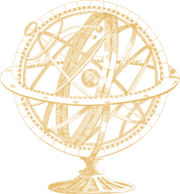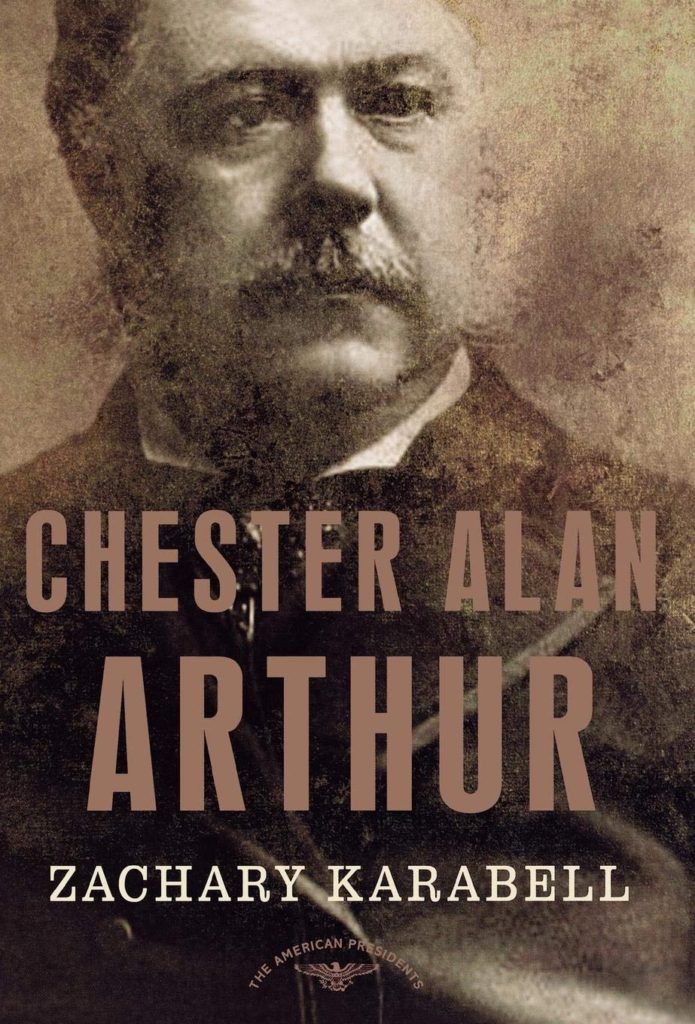“You have no idea how depressing and fatiguing it is to live in the same house where you work.”
Chester Arthur, near the end of his presidency
It’s interesting how biographies are shaped by access to the inner thoughts of the person being profiled. Most of Chester Arthur’s papers were destroyed at the end of his life, denying the public much in the way of reflection. No doubt maddening for historians, books like Zachary Karabell’s American Presidents Series entry have to rely on some combination of the general scene of the time period, newspaper editorials, memoirs of contemporaries and plain old speculation. Kudos to Karabell for the effort, as I once again learned a lot about someone I had no idea was a President of the United States.
Chester Arthur never wanted to be president. I don’t mean it in the false humility sense (Oh I couldn’t POSSIBLY accept…but since you’re demanding it, sure!) I mean he was a lazy party stooge that enjoyed choice appointments where he could show up at noon and leave early while making an exorbitant salary because he was drinking buddies with the governor. He lived in high style, spending a fortune on clothes, cigars, dinners with politician friends and furnishings for his home. People liked the guy. He was well spoken and not offensive, lazy but lovable.
All that is not to say he was a man without principle. Arthur was staunchly abolitionist, largely because his father was. During the “bleeding Kansas” days he moved to the disputed state with his law partner to aide the anti-slavery forces, but found it so violent that he didn’t stay long. Back home in New York, as a young lawyer, Arthur won a case that desegregated New York City’s streetcars. But he was not an outspoken critic on contentious issues. In fact, before he was placed as VP on Garfield’s ticket in 1880, Chester Arthur never held or even ran for any public office. He was happy to be gifted jobs in exchange for party loyalty.
In 1871, Arthur was made customhouse collector for the Port of New York. He made a killing. The main reason he made so much money was the moiety system. The customs collectors were given the incentive that if they snagged illegal, unregistered or undertaxed shipments they were legally entitled to a percentage of the goods seized or the fines imposed. To give you an idea just how lucrative it was, when the system was removed in 1874, Arthur saw his income drop from $50,000/year to $12,000/year. As mentioned in the Rutherford Hayes article, Arthur was removed from this post by Hayes to be made an example of in the president’s quest for civil service reform. The irony that it would eventually be Arthur, not Hayes, that signed the Pendleton Civil Service Act into law is truly a stranger than fiction moment in American history.
If you’ve been reading this series you’ve noticed a theme of not putting much thought into vice presidential choices on the part of the party nominating conventions. James Garfield couldn’t win the 1880 election without winning New York and Arthur was the unobjectionable New York puppet who could (assumingly) deliver the state. Like so many second-banana politicians before him, Arthur was “the most available man.” At best this was a short-sighted choice at the time. Arthur was viewed as the lackey of Senator Roscoe Conkling, the unapologetic king of the spoils system Garfield was dead-set on replacing. If Arthur were to ascend, it stood to reason that Roscoe, not Chester, would really be running the show.
Regardless, the ticket was set. Four months after swearing in, Garfield was shot. Eight agonizing weeks later, he was dead and Chester Arthur stood on the doorstep of history, much to his dismay and discomfort. At his home in New York City, Chester Arthur was sworn in by a state judge at 2:15 in the morning on Sept 20, 1881. How did people take the news? Some accused he and Conkling of a conspiratorial plot that led to Garfield’s fatal shooting (proven untrue). Some pushed the birther narrative, swearing the northern Vermont native was born in Canada and therefore unable to assume the presidency. Others held this more succinct, general view, “Chet Arthur? President of the United States? Good God!”
History has a funny way of never tracking a straight line. In reading about the 21st president I came across an article that argued Arthur’s tenure could be used as a model of how to step up to the plate when the times demand it. Conkling, rather than become puppet master, was run out of office. Rather than rebuff the civil service reform that had lost him his cushy sinecure, Arthur pushed ahead with the legislation and it became the keystone bill of his presidency. He even threw down a couple controversial vetoes (explained in the Trivia section) that left Congress astonished that the spoils-enriched man of New York had suddenly come to stand on principle since his change of address to Washington.
In addition to destroying all of his papers and correspondence, Chester Arthur only lived a little over a year after leaving the White House. A sufferer of Bright’s disease, the mental and physical strain brought on by the presidency likely hastened his earthly demise. With no landmark papers or speeches to quote, no post-presidential memoir and the obscurity often given to ascendant presidents, Chester Arthur has been all but forgotten in American history. He become a man of integrity during a Gilded Age of corruption and for that, if nothing else, he should be remembered.
Trivia
- Anti-Chinese Immigration Bill (later called the Chinese Exclusion Act) – Arthur vetoed the bill, much to the dismay of many politicians of both parties, the American public and especially Californians, who were complaining of (what else?) cheap labor stealing all their jobs. The bill called for the exclusion of Chinese immigrants for the next 20 years.
- Arthur felt the extensive time ban violated treaty agreements with China, was bad politics and would “repel Oriental nations from us and…drive their trade and commerce into more friendly hands.”
- In his veto message, he also argued against the provision that Chinese already here needed to register, seeing this Big Brother tactic as un-American.
- He was lauded by liberal press and burned in effigy along the California coast.
- Congress could not override the veto, so they wrote a new bill lowering the exclusion to ten years, whipped enough votes to ensure an override and forced Arthur’s hand to sign the amended bill.
- Vetoed the Rivers and Harbors Bill in August 1882, citing that the public should not pay for a bill that would only help “particular localities”, another bill people expected the spoils-enriched man to endorse rather than stand on principle against.
- Graduated from Union College in Schenectady, NY
- Father was a Northern Irish immigrant and Baptist preacher
- Un-woke Indian policy – As president he ordered the army to negotiate treaties first but was really trying for assimilation into American culture rather than preservation of Indian nations. Supported setting up schools for Indian kids to learn American laws and customs.
- At the end of his term was negotiating the conclusion of building a canal in Nicaragua (which didn’t end up happening).
- Did Ulysses Grant a little dirty, not supporting a measure of making him an honorary general with a pension to bail him out of financial hardship, arguing the Executive had the power to do so and not Congress. He thought it would set a dangerous precedent. Later, though, he would grant Grant the grant.
Follow-up Reading
- Gentleman Boss: The Life and Times of Chester Alan Arthur by Thomas Reeves
- Destiny of the Republic by Candice Millard
- The Unexpected President by Scott Greenberger


1 thought on “The Dude President”
Enjoyed the review, makes me curious about the man, as you are so good to do, but especially liked “grand Grant the grant”. Well played.